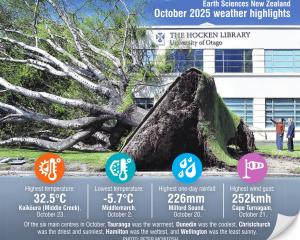That is why Fish and Game is calling on anglers to save the heads of the salmon they catch from the Clutha River - to help gather information to better manage the fishery.
''Our Off with their Heads campaign is aimed at helping us gather valuable scientific information about the salmon,'' Otago Fish and Game field officer Helen Keeling said.
''The earbones - or otoliths - inside the head are essentially the equivalent of a black box in an aircraft,'' she said.
Using laser and microchemistry analysis, the details of a fish's life history could be discovered including where they were born, if they were hatchery reared, how long they were at sea before entering the river, and other life history characteristics, she said.
''This is vital information for us that we can use to effectively manage this important and highly valued recreational fishery.''
The Off with their Heads campaign was designed to encourage anglers to retain and return as many heads as possible to Fish and Game so they could be analysed. Ms Keeling was encouraging anglers to get involved in the campaign and also spread the word that every lower Clutha or Pomahaka salmon had a story to tell.
The data from the analysis would assist with ongoing monitoring of the population and assessment of the present salmon enhancement efforts, she said.
''So, it's in the anglers' interest to help us get the best results possible.''
Anglers in the Roxburgh area could drop heads off in the marked chilly bin at 3727 Fruitlands-Roxburgh Rd. For alternative collection details contact the Dunedin office of Fish and Game, she said.












